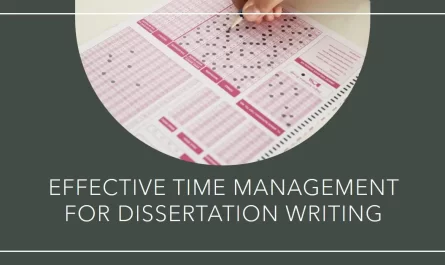Behavioural economics is critical for understanding human decision-making because it challenges the traditional economic assumption of perfect rationality, instead incorporating insights from psychology to explain how people frequently make irrational choices influenced by cognitive biases, emotions, and framing effects, providing a more realistic picture of real-world economic behaviour and significantly impacting modern economic research by offering new insights into consumer behaviour.
Now, if you are a student pursuing this as your degree and looking for fascinating dissertation ideas in behavioural economics, whether you are an undergraduate, master’s, or doctoral student, then this is what you need to understand first. Also, choosing the correct dissertation topic is an important decision that will set the tone for your dissertation journey.
Well, you don’t need to look elsewhere because we have got you covered. This blog post attempts to help you make this important decision by proposing some distinctive research topics that will help you stand out in the field. Also, if you feel like getting more assistance, then visit some online dissertation help services and let a professional be your mentor and guide you through your whole dissertation journey. Before proceeding to the list of topics, let’s take a moment to fully understand this.
What Is Behavioural Economics?
By looking at the psychological and emotional considerations that influence economic choice, behavioural economics closes the gap between human action and traditional economics. Students will have many opportunities to explore key issues as the course progresses, from consumer choice and cognitive bias to policy interventions and possible applications of behavioural insights.
Ten topics with ten subjects make up this inclusive collection of behavioral economics dissertation topics. These topics provide students plenty of choices in their studies through the treatment of contemporary issues, emerging trends, and possible directions in the future. In the following section, let us start by learning about some guidelines to select the most suitable dissertation topic.
Tips to Select a Behavioural Economics Topic
A critical aspect of the research process is selecting a study topic. Your topic of choice will lead your inquiry, determine the complexity and significance of your work, and show how engaged you are in the process. There are many interesting areas of study within behavioural economics that can be researched. The professional recommendations that follow will lead you through this step:
1. Understanding Your Interest
Identifying your areas of interest is the starting point for selecting a research topic. What aspects of behavioural economics are you most interested in? Are you more interested in the application of behavioural economics to marketing or personal finance, or are you interested in how it influences policymaking? You can focus your options and select a topic that truly interests you by spending some time on these questions. Remember that research work is time-consuming; hence, your interest in the subject matter will keep you motivated.
2. Assessing the topic’s scope:
The second phase, once you know what your fields of interest are, is to look at the diversity of possible topics. A good research topic shouldn’t be too general or too specific. If it is too broad, you can find it hard to cover everything that pertains to the topic. You might be unable to gather sufficient data to support your research if it is too limited. Choose a subject that is big enough to provide adequate resources but specialised enough to be feasible.
3. Evaluating the data and resources at hand:
It is essential to evaluate the data and materials at hand before selecting a topic. Do you possess adequate scholarly materials to support your study, such as books, journal articles, and reports? Can you examine publicly available data in case your research requires it? You can perhaps steer clear of selecting a topic that will require minimal resources by conducting an initial examination of the literature and statistics.
4. Consider the Relevance and Applicability of the Topic:
The relevance and applicability of the topic are also crucial factors. Is the subject matter pertinent to today’s behavioural economics questions? Can your research results be applied in real-world contexts? Your research appeal and impact can both be boosted by choosing a topic that is useful and relevant.
5. Seeking advice:
Never be afraid to seek the advice of your teachers, peers, or other specialists on the topic. They can assist you in refining your subject, recommend materials, and give valuable tips. Talking to other people about your ideas can also lead you to view matters differently and discover issues that you did not initially see.
6. Flexibility:
Finally, remain flexible. Because research is a dynamic process, it’s okay to change your topic along the way. You may discover some areas of the topic are too difficult to research due to constraints or new and more intriguing aspects of the problem. Flexibility enables you to reorient your research to such developments, making your research interesting and valuable.
List of Trending Themes In Behavioral Economics
The most relevant behavioural economics dissertation topics are listed below:
The importance of cognitive biases in research concepts concerned with behavioural economics
- Taxation and behavioural economics: methods to increase compliance.
- A comparative analysis of investors in developed and emerging markets about behavioural biases in financial decision-making.
- The impact of behavioural biases on the rates of mortgage default in the US is a case study.
- A review of UK social standards and environmental conduct.
- The role of fairness and equity in economic transactions: a game theory approach.
Titles for research proposals in behavioural economics that use decision-making models
- A cross-cultural investigation into the effect of loss aversion on investing decisions.
- College choice and significant selection are examples of behavioural aspects in educational decision-making.
- Behavioural economics approaches to increasing workplace efficiency in the UK.
- A subscription economy study examines behavioural aspects in consumer subscription arrangements.
- Behavioural insights on technology adoption: factors influencing user acceptance.
Topics for dissertations on behavioural economics and market behaviour
- An empirical research into anchoring and adjustment in real estate price.
- A critical assessment of behavioural economics and UK monetary policy.
- Anchoring’s role in real estate pricing: residential property market evidence.
- A comparison of healthy eating pushing tactics in the UK and Japan.
- An experiment to investigate the impact of social norms on charitable giving.
The influence of behavioural economics on customer preferences: research proposal themes
- A study of credit card debt demonstrates behavioural biases in consumer debt accumulation.
- Behavioural insights on stock market volatility: investor behaviour amid economic crises.
- A business viewpoint is being investigated into the impact of loss aversion on pricing tactics.
- Understanding consumer debt buildup in the United Kingdom: A behavioural approach.
- What inspires consumers? A behavioural economics viewpoint.
Analysing the effect of loss aversion in behavioural economics dissertation research issues.
- Emotional influences on economic decisions: A neuroeconomic approach.
- An evaluation of annuity options based on behavioural economics.
- Behavioural biases in investing diversification: portfolio risk management.
- Longitudinal research to assess the effectiveness of behavioural interventions in financial literacy instruction.
- A longitudinal study that examines the effects of current bias on financial decision-making.
Investigating the role of behavioural economics in public policy research proposal examples
- The psychology of public institutions: economics or politics?
- The feasibility of public policy formulation is investigated using a behavioural economics method.
- Behavioural insights into public transport use: A comparison of London and New York City.
- A comparative analysis of European nations’ tax compliance and behavioural economics.
- Nudging strategies’ implications on tax compliance behaviour in the UK.
Suggestions for a dissertation on financial market behavioural economics.
- Analysing the impact of overconfidence in trading: Financial market implications.
- Influences and incentives in behavioural economics and charitable giving.
- Overconfidence in trading: Financial market implications.
- An evaluation of annuity options based on behavioural economics.
- A critical look at behavioural economics in the UK stock market.
Social factors and behavioural economics: research proposal themes
- Examining the effectiveness of behavioural economics interventions in environmental protection in the United Kingdom.
- A cross-cultural investigation into how important social identity is to consumer buying patterns.
- The impact of social identity on economic behaviour: Implications for marketing strategy.
- Using stock market data to examine the impact of social proof on investing decisions.
- A critical assessment of behavioural economics and UK monetary policy.
Titles for dissertations on behavioural economics and ethical decision-making
- The role of fairness and equity in economic transactions: A game theory perspective.
- An investigation on the decision-making spectrum of obese people and the implications for improvement through the use of behavioural economics.
- How can we use behavioural economics theory to protect the environment? A study.
- A systematic review of marketing approaches based on behavioural economics.
- Case study: Encouraging sustainable mobility choices in a metropolitan area.
The impact of emotions on economic decision-making dissertation topics.
- The influence of emotion on economic decisions: A neuroeconomic approach.
- Behavioural variables in credit card debt management: Personal financial implications.
- In the United Kingdom, researchers are looking into the impact of social identity on financial decision-making.
- Behavioural insights on corporate productivity: Employee engagement strategies.
- The importance of emotion in consumer purchasing decisions: A behavioural economics viewpoint.
Ideas for research papers on nudging and behavioural economics.
- The effectiveness of menu labelling in restaurants in encouraging healthy eating.
- Nudging for energy conservation: An assessment of incentive programmes.
- The effect of default selections in employer-sponsored programs on retirement savings nudging.
- A comparison of healthy eating nudge tactics in the United Kingdom and Japan.
- A case study of residential households nudges them towards sustainable energy consumption.
The nexus of behavioural economics and neuroscience: research paper titles
- Emotion’s influence on economic decisions: A neuroeconomic approach.
- The implications of time discounting on long-term saving behaviour are being investigated.
- From a neuroscience perspective, investigate how cognitive biases influence decision-making.
- A neuroeconomic approach to understanding the psychology of investing risk-taking.
- Using stock market data to examine the impact of social proof on investing decisions.
Consumer behaviour in behavioural economics: Topics for research papers
- Causes and answers to behavioural issues in online shopping cart abandonment.
- Prospect theory in online shopping behaviour: A UK and China comparative study.
- Understanding consumer debt buildup in the United Kingdom: A behavioural approach.
- A comparative examination of behavioural factors influencing mortgage default rates.
- Behavioural economics in consumer purchase decisions: A case study in the UK market.
Using behavioural economics in health economics: Research paper research questions
- Addressing diabetic lifestyle management through behaviour analysis: findings from the UK healthcare system.
- Behavioural biases in healthcare decision-making: A UK-Australia comparative investigation.
- An investigation on the decision-making spectrum of obese individuals and the implications for improvement through the use of behavioural economics.
- A comparative investigation of behavioural aspects in health insurance selections.
- The function of justice and equity in economic exchanges: A game theory perspective.
Examples of dissertations in behavioural economics and environmental policy.
- Behavioural economics and tax compliance: A comparative comparison of European countries.
- The impact of social identity on economic behaviour: implications for marketing strategy.
- Case study: behavioural economics approaches to addressing food waste in the restaurant business.
- A comparison between Millennials and Baby Boomers’ charitable donating behaviours.
- An examination of annuity options based on behavioural economics and retirement savings behaviour.
Wrapping It Up
In conclusion, selecting the right dissertation topic in behavioural economics is crucial for success. Whether you’re pursuing an undergraduate, master’s, or doctoral degree, selecting unique and interesting research questions or project topics can guide your dissertation proposal. Undergraduate students typically study economics or behavioural science, while master’s students focus on applied behavioural economics. Doctoral students delve into advanced research in behavioural economics.
Now, if you’re unclear about which topic to pursue, behavioural economics dissertation help can help you select and build a research-worthy topic. Visit some online academic help services, ask for professional assistance, and complete your behavioural economic research with expert help to excel academically.



